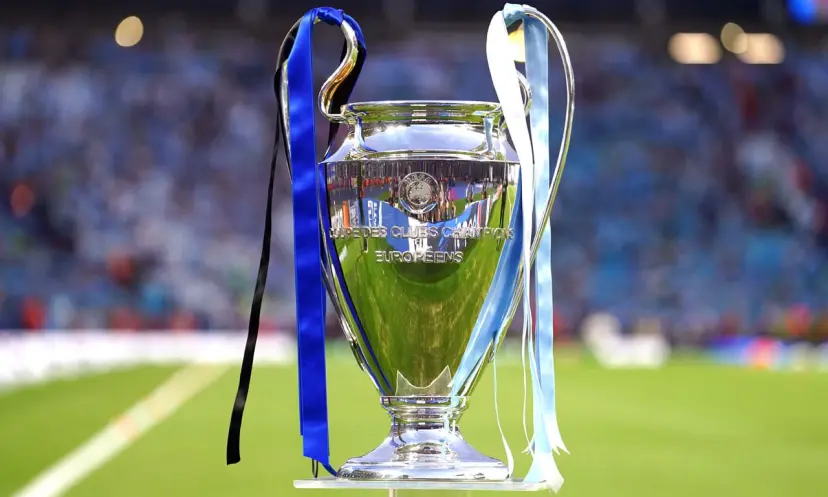Champions League squads: How they compare
Published: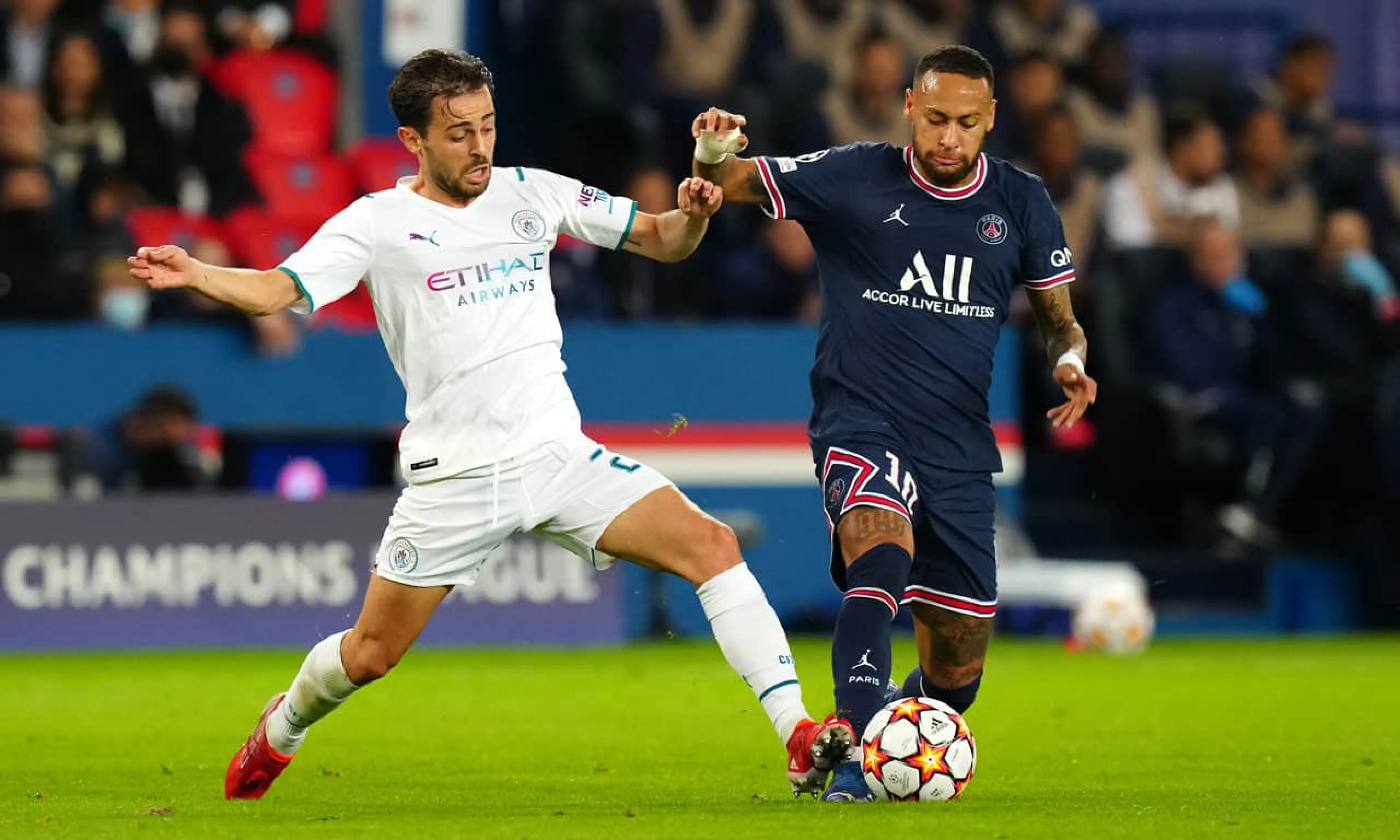
With the Champions League now fully under way and already delivering plenty of drama and excitement for fans across Europe, we have delved a little deeper into the players behind it all.
Each of the 32 Champions League squads has been analysed and profiled, with everyone who has played a part in the first two rounds of matches compared.
Which Champions League squads are the oldest … and youngest?
The youth versus experience debate is sure to play out in this season’s Champions League with some huge variations in the age of squads. Based on their average ages on the first day of the group stage, Sevilla’s players are the oldest. The 2020 Europa League winners clocked in at a shade under 29 years old, embodied by their evergreen 35-year-old captain Jesus Navas.
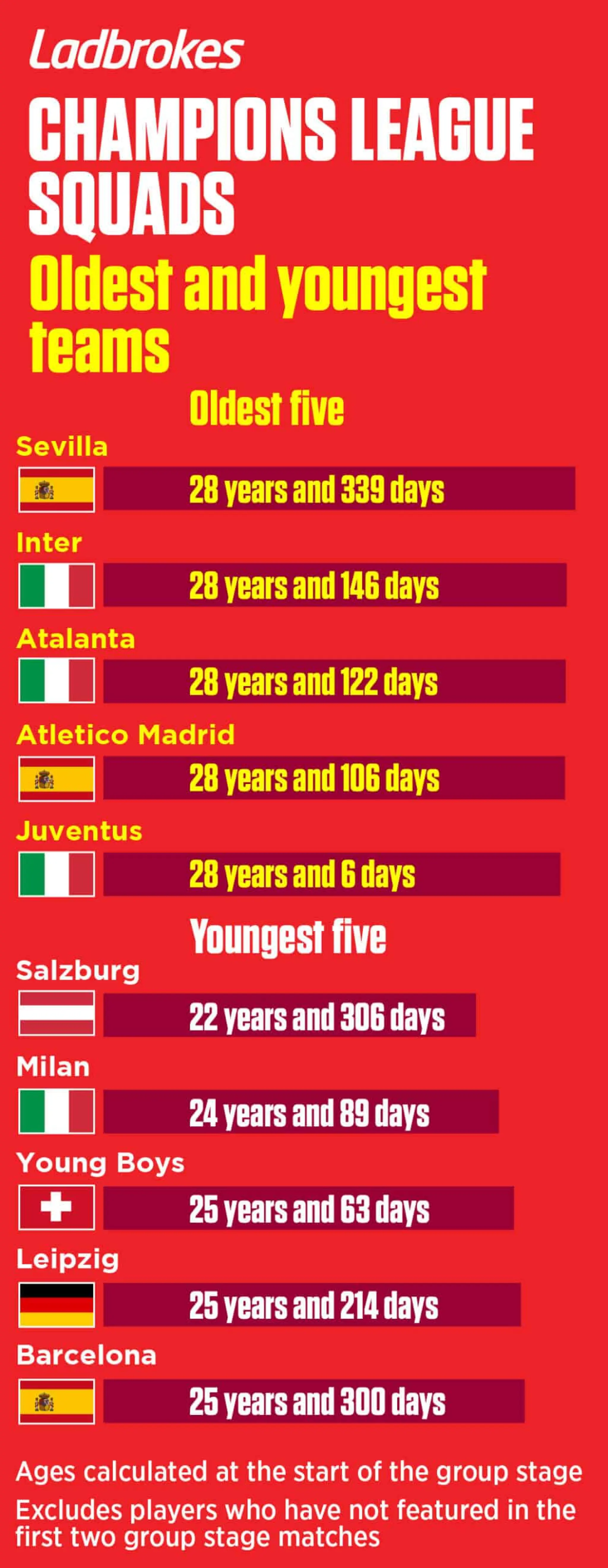
Coincidentally Sevilla share Group G with the youngest side in the competition Red Bull Salzburg, who have an average age of under 23 so far. The two teams drew 1-1 in their opening match with both goals coming from the penalty spot. The players who converted these penalties epitomised the gulf in ages, with 19-year-old Luka Sučić opening the scoring for Salzburg before Sevilla’s 33-year-old Ivan Rakitić netted the equaliser.
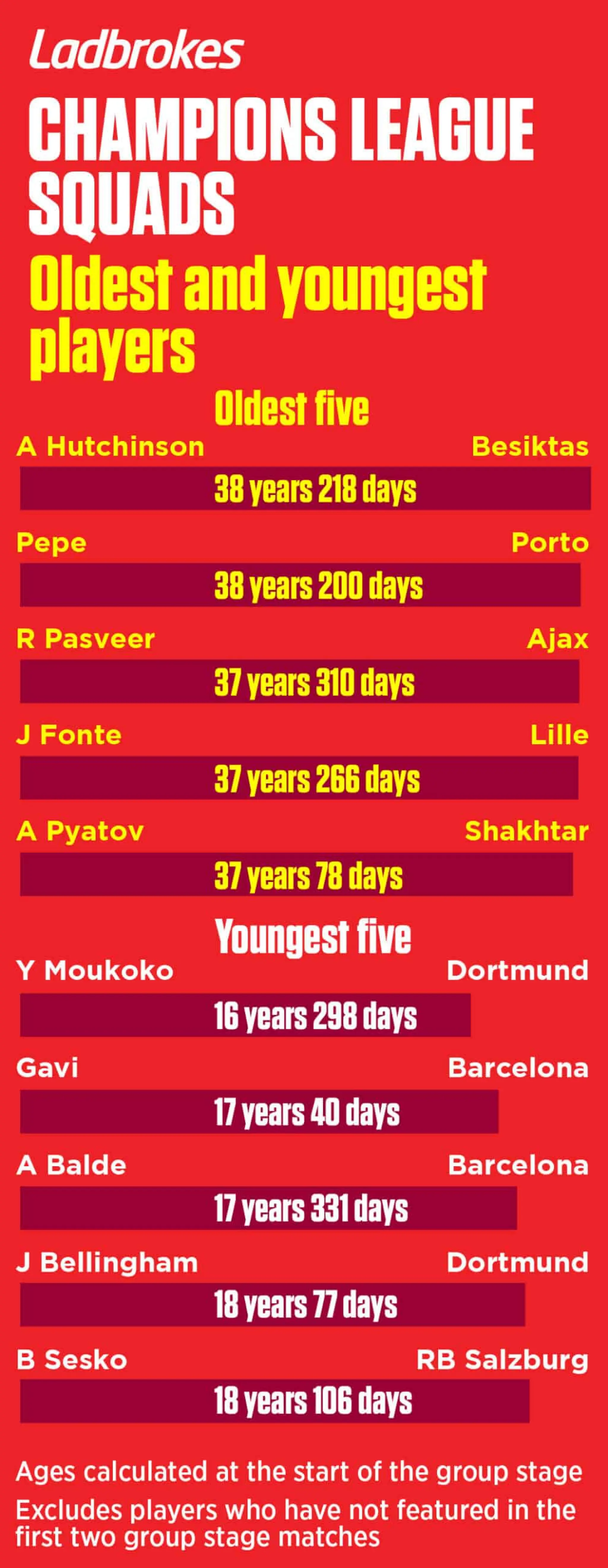
Neither of these players are close to the edges of the age distribution however. The oldest player to have featured in the Champions League so far this season is Atiba Hutchinson of Besiktas, who was 38 years and 218 days old at the start of the group stage. Meanwhile both Borussia Dortmund and Barcelona have fielded two of the four youngest players to have played in the competition this term.
Which Champions League squads contain the most domestic players?
Another interesting comparison is how many players in each squad have the same nationality as the club they represent. So far only one club has seen at least three quarters of the players they have fielded hail from their own country: Ukraine’s Dynamo Kiev. Only one of their starting 11 in their defeat at Bayern Munich was not Ukrainian: their Uruguayan left winger Carlos de Pena.
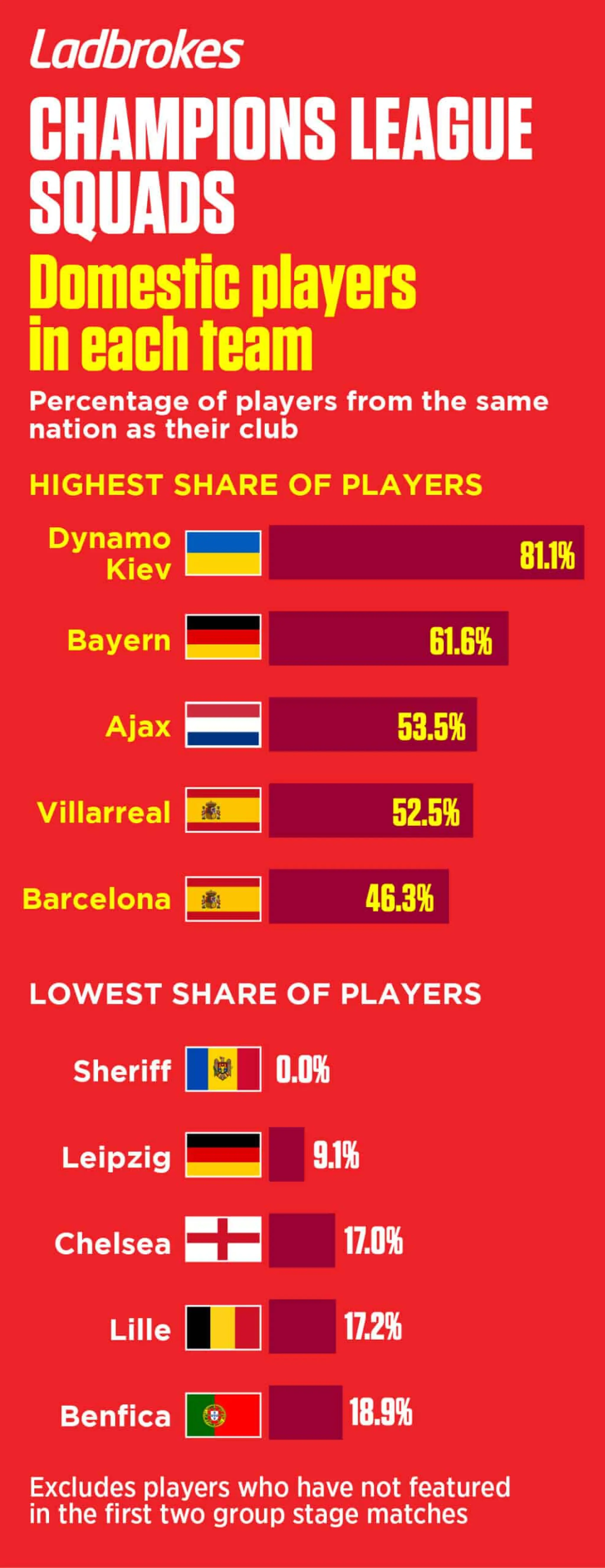
This season’s surprise package are debutants Sheriff, who have won their first two group matches despite having a much smaller budget than their opponents. Despite hailing from Moldova, they have not fielded a single Moldovan player so far; their first four goals in the Champions League have been scored by players from Mali, Guinea, Uzbekistan and Luxembourg.
Which nations are the most widely represented in the Champions League?
While all the clubs eligible for the Champions League are European, the nation that has provided the most playing minutes in this season’s competition is not. So far, more than 10 per cent of the minutes played have been clocked up by Brazilian footballers, with the likes of Alex Sandro at Juventus and Sheriff’s Cristiano among the ever-present players this term.
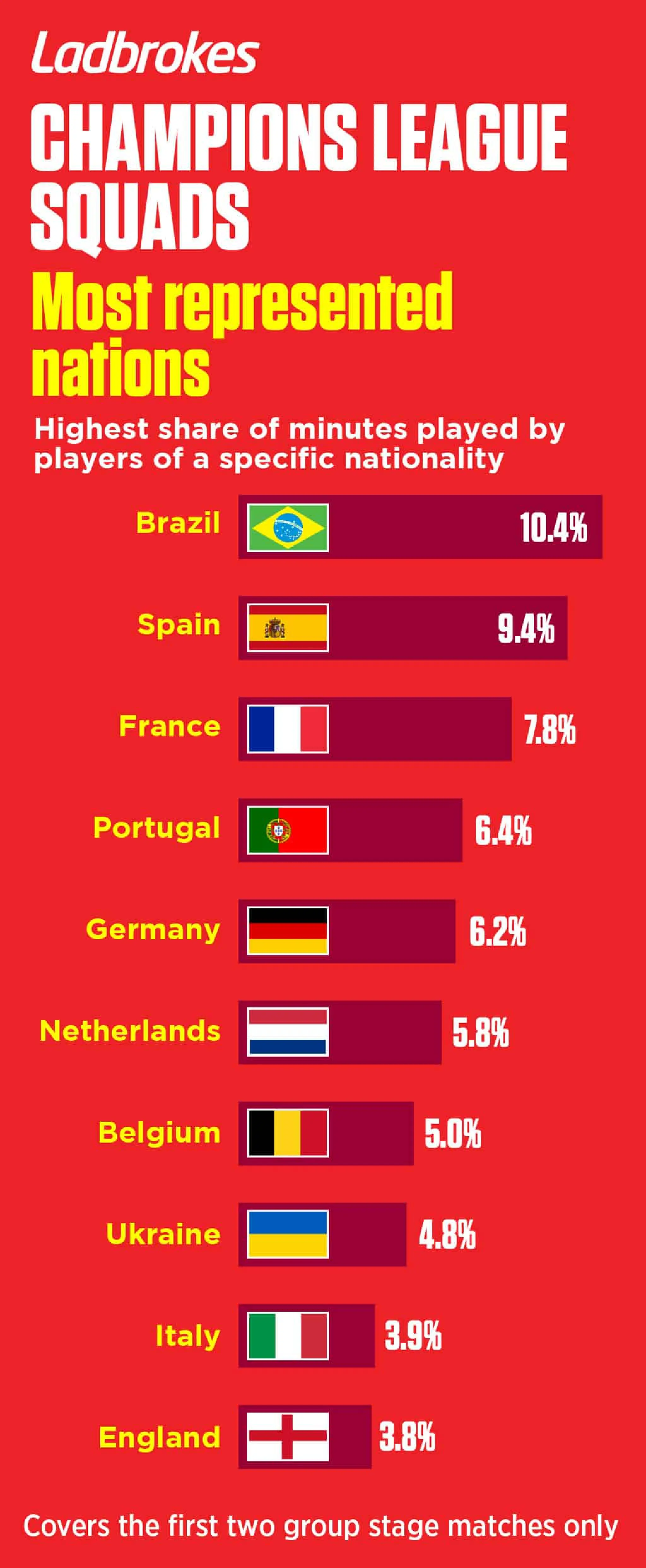
Spanish players have been the next most used, followed by French, Portuguese and German ones. Despite English clubs enjoying a period of success in the competition, with Liverpool and Chelsea winning two of the last three finals, English players have collectively racked up just the 10th highest share of minutes this season.
Which Champions League squads are the most and least valuable?
The most valuable of this season’s Champions League squads (according to Transfermarkt) is Manchester City, with the players they have fielded in the group stage worth almost a billion Euros between them. This eclipses fellow big spenders PSG by €110m and Premier League rivals Liverpool by €182m.
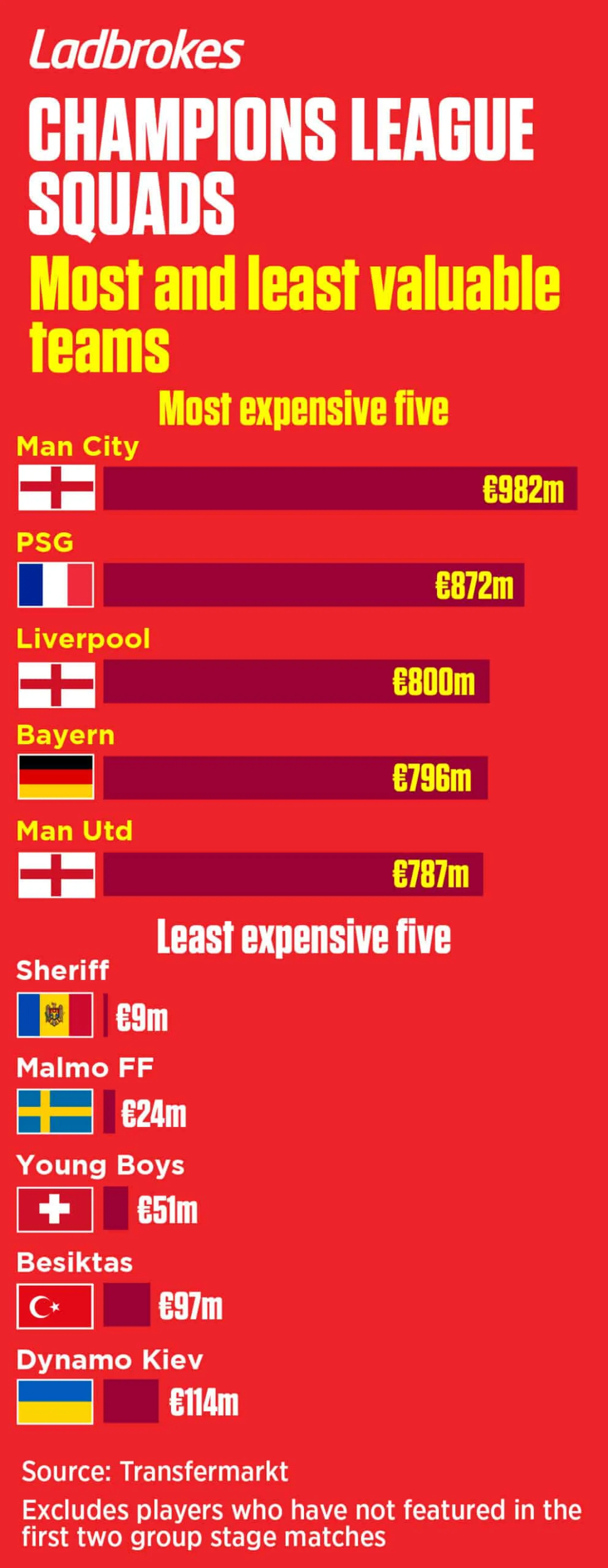
The least valuable squad in the competition belongs to first-timers Sheriff, whose collective market value currently stands at just €9m. However, if the Moldovan side continue to impress then this number should start to rise quickly.
Which Champions League groups are the most unbalanced?
Sticking with squad values and looking at how they compare within each group, Manchester United’s collective worth of €787m is more than their three Group F opponents combined. Atalanta (€385m), Villarreal (€266m) and Young Boys (€51m) have all qualified with far cheaper talent and should therefore pose little resistance if each manager was equally adept.
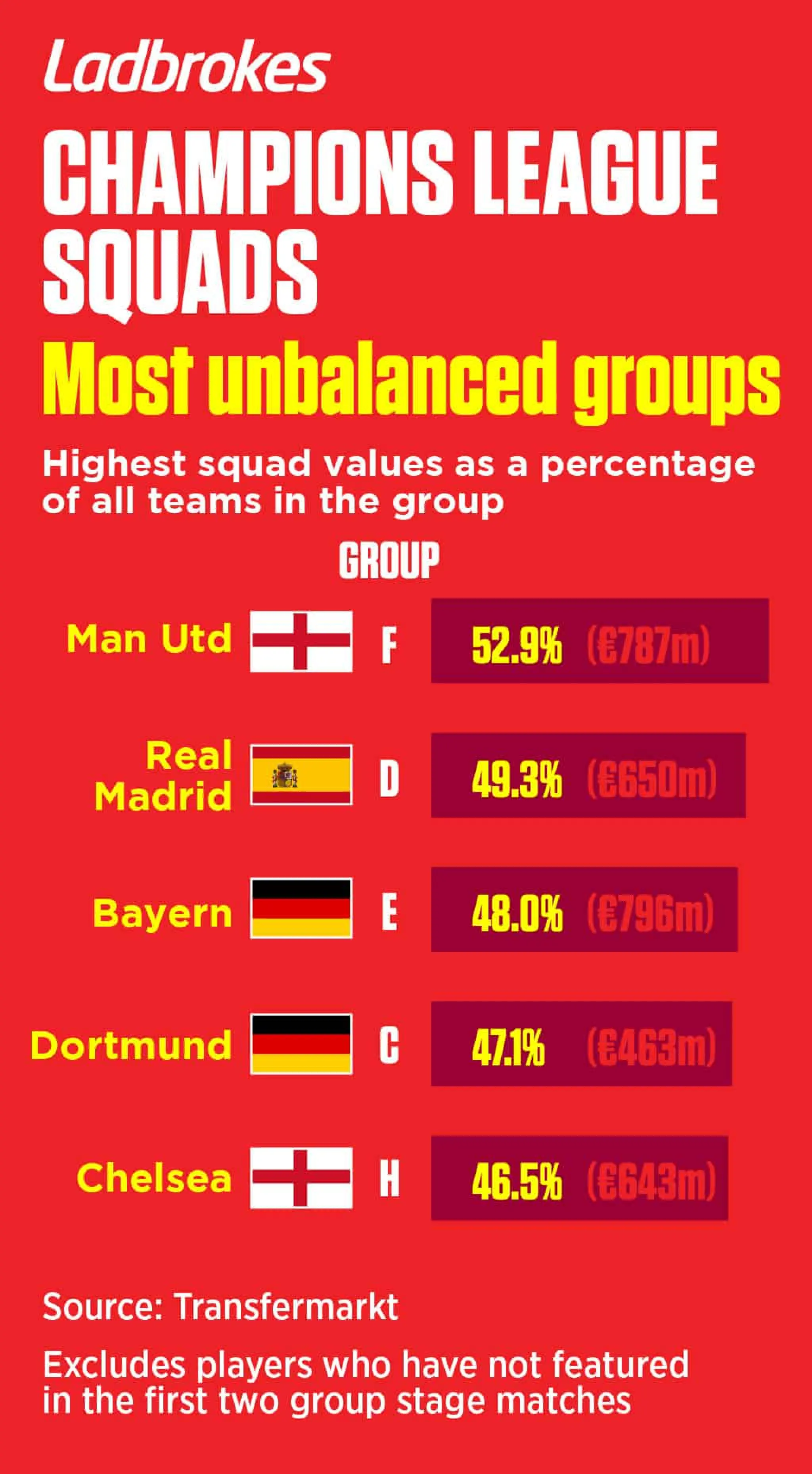
An honourable mention must go to Real Madrid, whose historic defeat to Sheriff was a proper David versus Goliath affair. The Spanish giants have a squad which is 73 times more valuable than the Moldovan minnows: €660m compared with just €9m.
Which Champions League squads are the tallest … and shortest?
Another debate in modern football is whether physicality or technique is more important, with the variety of player heights among Champions League squads sure to fuel it further. Italian side Atalanta clearly lean towards the physical, with the average height of their squad a towering 185.5cm: just over six feet tall. Their line is led by Colombian striker Duvan Zapata, who is 6ft 2in has looked lively this season with two assists to his name already.
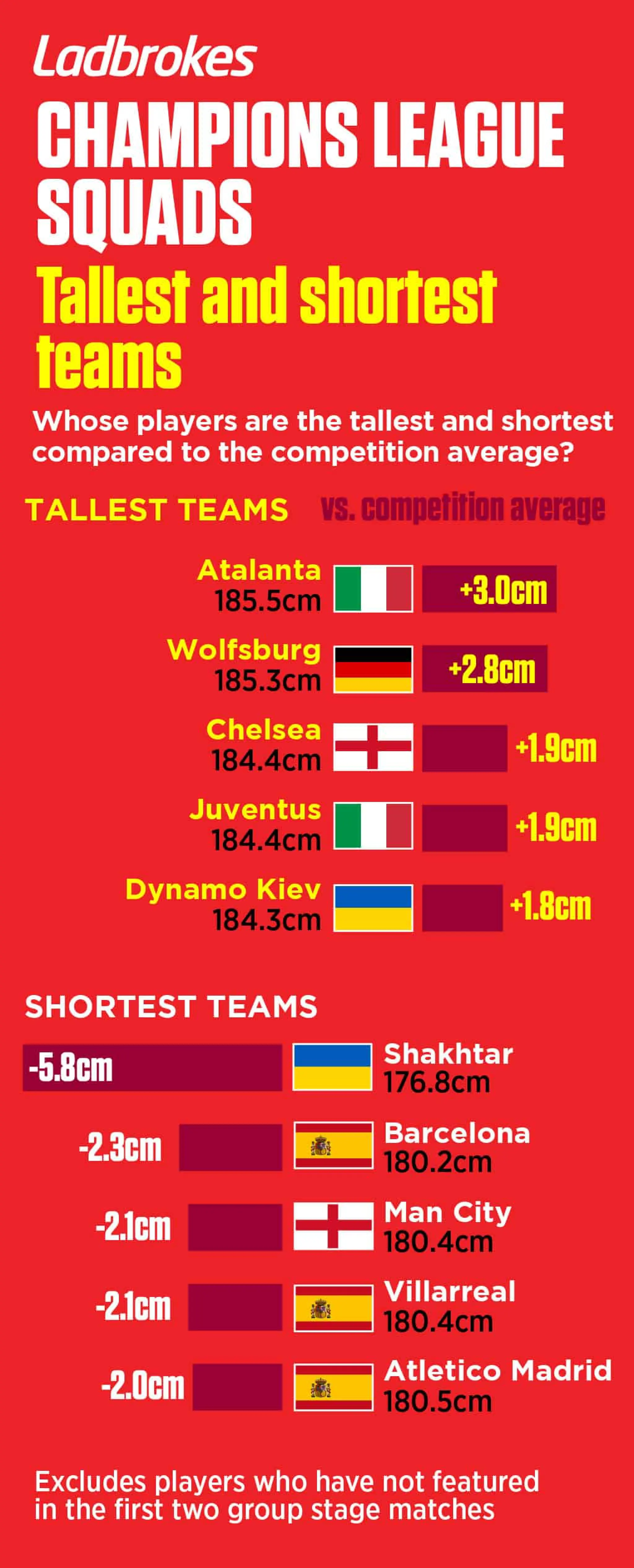
The shortest team in this season’s Champions League – and the only one whose average height falls short of 180cm – is Shakhtar Donetsk. The Ukrainian side have fielded players almost six centimetres shorter than the average in the competition so far.
Which Champions League squads have been together the longest?
If Real Madrid fail to meet expectations in the Champions League then it won’t be because they tried to change too much, too soon. The average member of Carlo Ancelotti’s squad has been with the club for over five years, making them the longest-serving group of players in the competition.
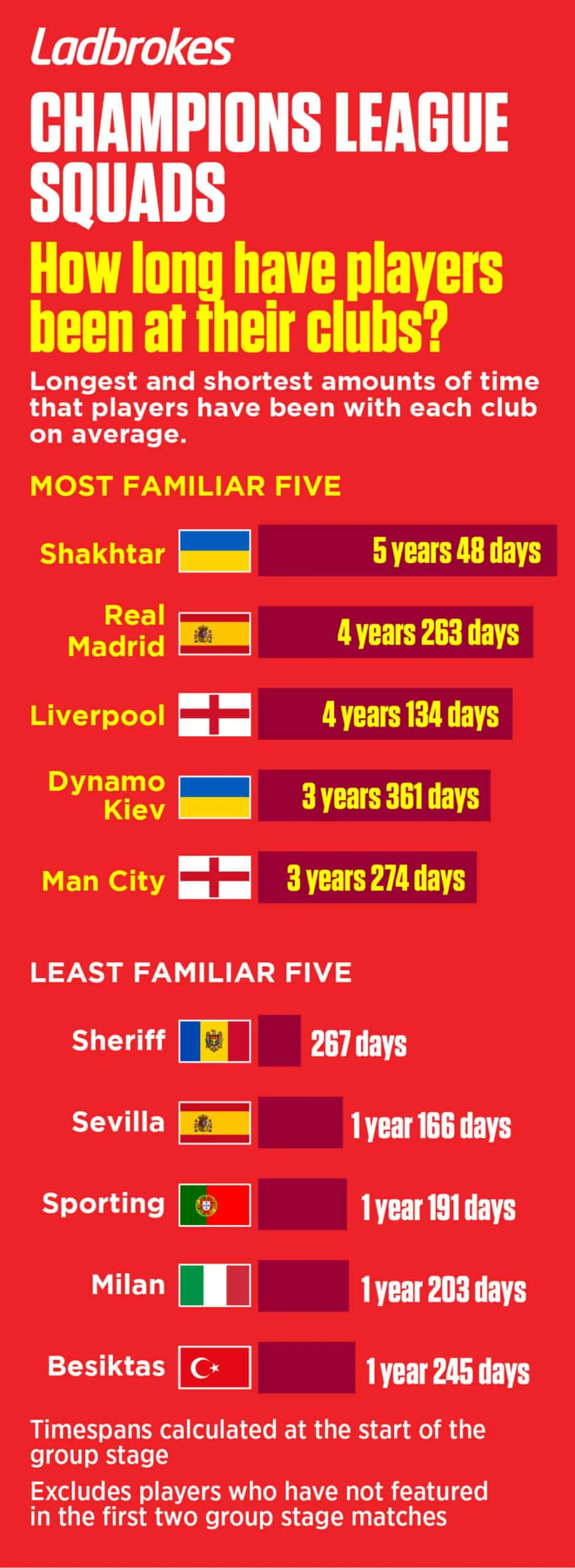
By comparison the Milan side challenging Liverpool and Atletico Madrid in Group B has been completely revamped recently. With an average tenure of under two years, it’s clear that manager Stefano Pioli has presided over a huge clear-out since joining in October 2019.
Which club has scored the most goals in the Champions League?
PSG’s busy summer has seen them more than double the number of Champions League goals in their squad, which is currently the competition’s most prolific. Lionel Messi alone added 120 strikes in the competition to the Parisians’ total of 231 ahead of this season.
An even larger swing was achieved by Manchester United whose combined tally going into this campaign was boosted by the return of Cristiano Ronaldo and his 174 Champions League goals in previous seasons. Ronaldo has actually scored more goals in the competition than every other squad combined, apart from PSG and Bayern Munich.
Only two squads in this season’s group stage had never registered a Champions League strike between them: the aforementioned debutants Sheriff and Malmo of Sweden. While the Moldovans have opened their account this term, the Swedish side’s players are still waiting for their first goal in the competition.
